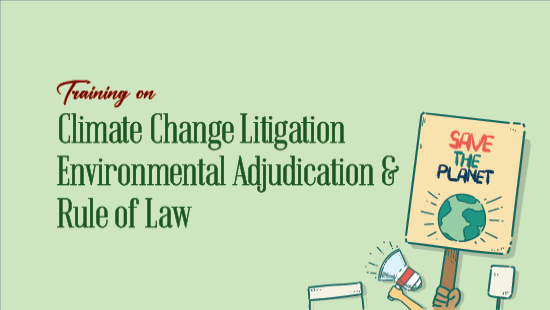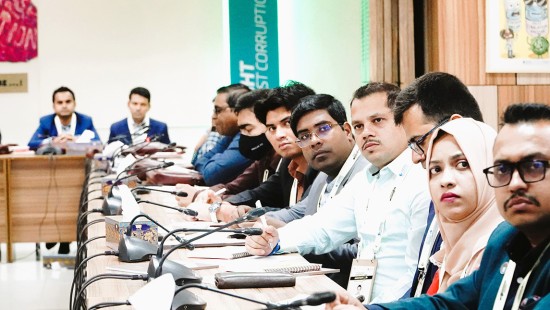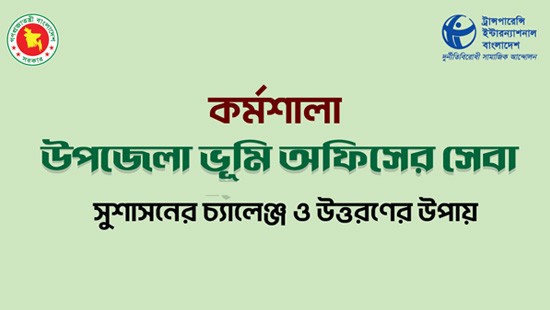Published: 05 September 2025
Chair, International Board of Directors, Transparency International (TI), François Valerian, spent two busy days in Bangladesh meeting with top officials. His three important meetings could bring major changes to how Bangladesh fights corruption. He met with the Chief Adviser, the Chief Justice, and the head of the Anti-Corruption Commission. These meetings show that TIB is playing a vital role in what might be the biggest government reform effort since people protested and brought change last July.
Dr. Valerian met with Chief Adviser Professor Muhammad Yunus and talked about working with other countries to fastening corrupt politicians and freeze their laundered money. Chief Adviser Yunus strongly criticized global banks that help move this stolen money. Valerian asked for stronger international laws to stop laundered money from finding safe places in rich countries and tax havens. This matches what TIB wants to fix the system so corrupt people can't hide their stolen money. TIB’s Executive Director, Dr. Iftekharuzzaman was accompanied Dr. Valerian and mentioned about how TIB helped freeze assets belonging to people connected to the last authoritarian government. He also stated that, TIB worked with TI-UK to make this happen. Nonetheless, Bangladesh loses $16 billion every year as corrupt member of parliament and ministers send money to other countries.
Dr. Valerian's meeting with Chief Justice Syed Refat Ahmed focused on making Bangladesh's courts stronger and more independent. They talked about creating a justice system that can break up corruption networks, bring justice for past crimes, and work without interference from politicians or political parties. Valerian explained that for democracy to work, courts must be completely free to do their job. They need enough money, staff, and honest judges to fight both old crimes and new corruption cases. This matches what TIB has been asking for, especially as the country prepares for elections in February. Strong, independent courts are essential for punishing corrupt officials and establishing the rule of law.
Valerian's one more meeting was with Anti-Corruption Commission (ACC) Chairman Abdul Momen. This was the detailed discussion about reforming the ACC. They talked about learning from other countries' best practices, making the ACC more independent, updating old laws, improving how the commission works, better cooperation with other bodies, fixing financial management, and expanding the commission's role in preventing corruption. This complete reform plan supports TIB's push for stronger anti-corruption institutions. They especially focused on working with other countries since financial crimes often cross borders.
These three connected meetings show that fighting corruption requires fixing multiple parts of the system at the same time. International laws, independent courts, and strong anti-corruption bodies that must all work together to create lasting change. As Bangladesh prepares for its democratic future, TIB is playing two important roles. First, pushing for reforms inside the country and last but not the least, building connections with international partners.












